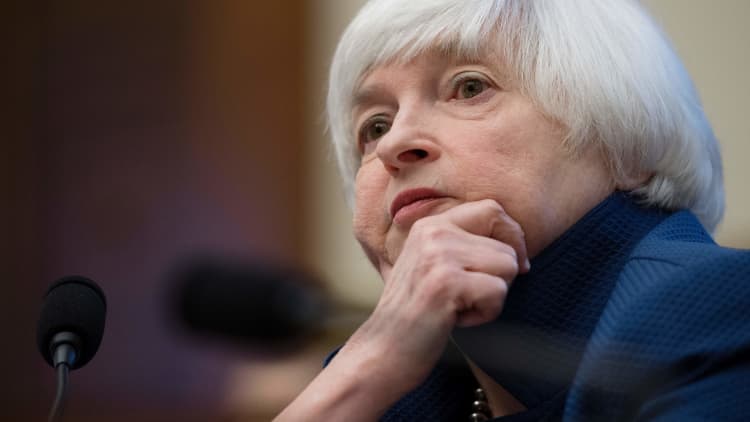The Federal Reserve's plan to trim some of its $4.5 trillion securities holdings won't have much impact on bond yields right away. But by next year, the could creep up to 3 percent, according to BlackRock's Rick Rieder, global chief investment officer of fixed income.
Rieder expects the 10-year to reach 2.50 percent or slightly higher by year-end, from its current 2.22 percent level.
After years of extraordinary easing, the Fed is finally stepping away from this final phase of its quantitative easing programs, which it started during the financial crisis to boost the economy.
that it will start reducing its purchases of Treasurys and mortgage securities by $10 billion a month. That amount will increase by another $10 billion in three months, and the Fed will continue to ratchet up the volume until it reaches $50 billion next year.
The Fed currently makes those purchases to replace its Treasury and mortgage holdings as they mature. That keeps its balance sheet steady.
Rieder expects the U.S. central bank to begin the "tapering" of its balance sheet as soon as next week. He said the Fed will not likely tweak its interest rate outlook for 2017 or 2018, but it could cut back on the later forecasts for higher rates.
Rieder said U.S. Treasury yields at the long end are being held down by global forces, and the Fed's initial tapering this year will be "a drop in the bucket."
He said the 10-year Treasury note yield can be more impacted by the easy policies of other global central banks, like the Bank of Japan or the European Central Bank. Both at some point went to negative rates, and are currently undertaking their own QE programs.
As a result, U.S. yields have looked more attractive to global investors.
"We're in this unbelievable conundrum," he said, noting that global growth would call for higher yields. He said that Japanese and European bonds have yields that are too low, and there is a large global appetite for yield.
"There's not enough bonds in the world at attractive levels," Rieder said adding yields should be 30 to 40 basis points higher. "But you have this incredible demand come in."
Rieder said the 10-year will move toward 3 percent next year, as the Fed's program to shrink its balance sheet expands and the ECB also starts to slow down its own asset purchase plan.
WATCH: BlackRock: Fed's balance sheet unwind won't derail the rally



